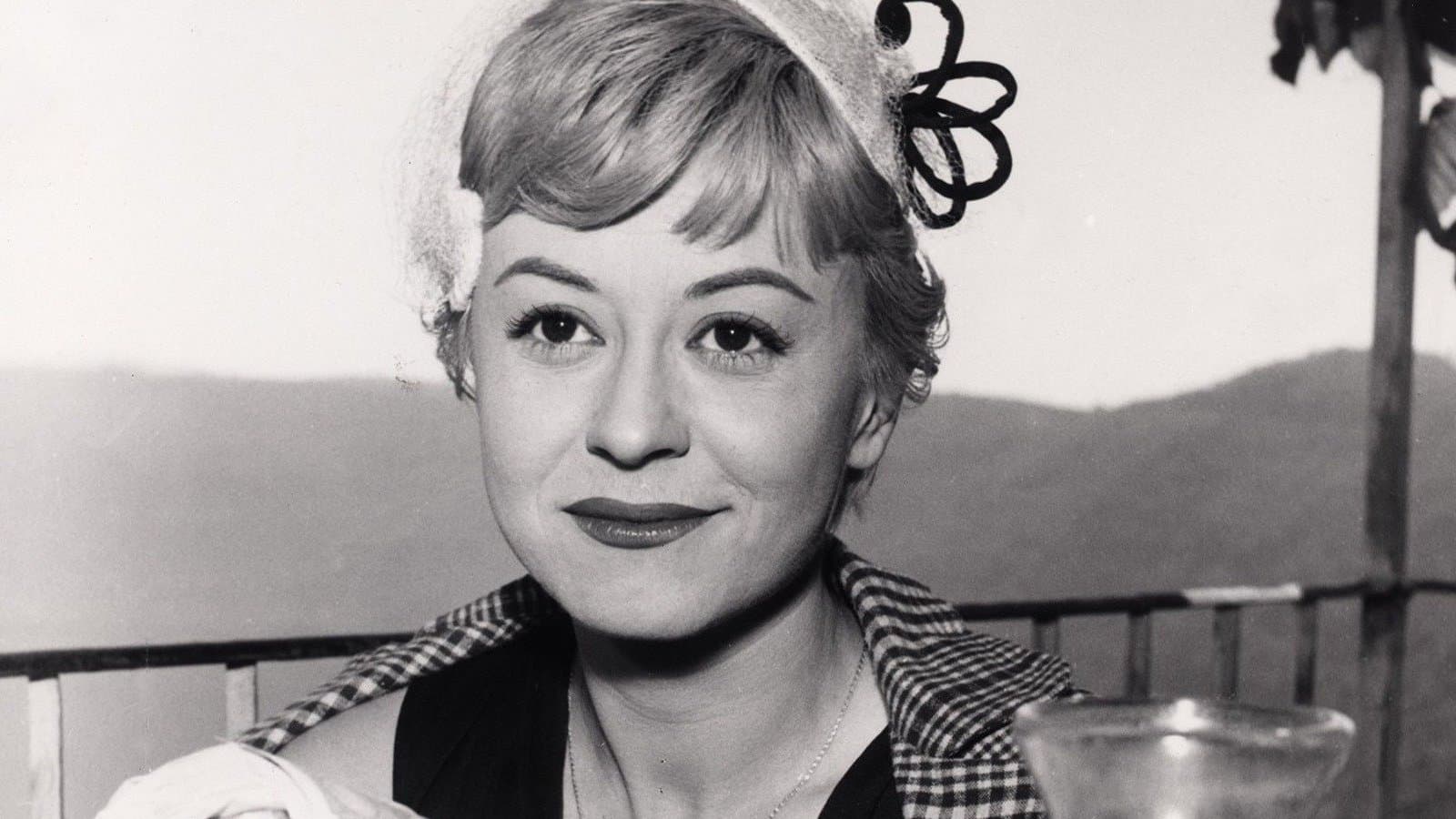Don't miss your future favorite film!
Subscribe to our newsletter and get the latest updates from the SIFF community delivered straight to your inbox.
Don't miss your future favorite film!
Subscribe to our newsletter and get the latest updates from the SIFF community delivered straight to your inbox.
Tova Gannana | Tuesday, May 2, 2023

Nights Of Cabiria (1957) film notes by Tova Gannana for Greg Olson’s Life is a Feast: The Cinema of Federico Fellini series, running April to June 2023 at SIFF Cinema Uptown.
Nights Of Cabiria (1957) opens mid-day with two lovers running towards the river. Swinging her arms, Cabiria (Giulietta Masina) reaches for Giorgio’s (Franco Fabrizi) hand. He snatches her purse and pushes her into the rushing water. She is saved from drowning by boys who spot her from the shore. From this experience Cabiria thinks she’s learned a lesson. She will never trust Giorgio again. Cabiria returns to her home and burns the clothes she bought him. Her hopes disintegrate with the flames.
Rome, one of the oldest cities, is also a series of neighborhoods. Zip codes signify poverty or wealth. Cabiria and Wanda (Franca Marzi), friends and co-workers, live in cinder block houses behind a gas station on the road to the city center. Their houses stand in a field that feels safe but not permanent. Children play on scaffolding, waving to the women as they come and go. Cabiria wears flat shoes, her eyebrows linear. Cabiria sees right through Amleto the Pimp’s (Ennio Girolami) promise of protection. She is proud of sleeping in her own bed, not under a bridge. She manages her money, fights when challenged, walks her own beat, yet is deceived by lovers because she wants to believe she is lovable. The women who work on the street dress alike as though they are interchangeable.
No matter the weather, Cabiria's scene is outside. One night, she stops at a nightclub, drawn by the music until a woman struts past heading for a fancy car followed by a man yelling. Cabiria enters their evening like she’s stepped into a cinema. Jessy (Dorian Gray) slaps Alberto (Amedeo Nazzari) who returns a hand across her face. Jessy runs down the street. She’ll always have another place to go. Alberto Lazzari and Jessy spend their nights inside. Jessy wears a white fur coat thrown around her shoulders, reaching her ankles, more a cape than a means to keep her warm. Cabiria’s fur is cut in the chubby style of the past. Its bulk looks militaristic. Alberto prowls Rome. He invites; he decides and orders the contents of his life. He places people to accommodate himself. He is a famous moviestar. His origins unknown, he is helped by his gender. Alberto notices Cabiria standing by the club entrance and brings her inside. Modern dancers perform in unison with serious faces and minimal costumes save for the faux horse tails attached behind them. They are of a world Cabiria knows nothing about. She watches them in their elegance and shrugs.
Cabiria stands out in any group. Among her fellow prostitutes she is independent. At the nightclub with Alberto she dances a street mambo no one would dare do. Alberto seems amused. She longs for a life when she will sleep at night and be awake during the day. Cabiria’s life is a series of events leading her to the same place. She makes a pilgrimage with Wanda and the others to a village church where peasants holding long candles pray to Mother Mary for mercy. Cabiria is devastated when after mass no visible miracle occurs. Her situation is the same. The others, happy with wine, don’t understand her. She leaves them sunning on a hill.
Cabiria is a survivor in body because of her wits, in spirit because she is gullible. A magician brings her onstage during a vaudeville show and hypnotizes her. Cabiria against her will reveals her deep desire to be seen as innocent and pure. The audience is a stand-in for society. “Who would marry you,” the men shriek from their seats. They jeer and poke fun. One of them is paying attention. Oscar D'Onofrio (François Périer) waits for her to leave the theater. He then spends weeks wooing her during the day, never meeting her friends. Cabiria facing the street at night, an umbrella open over one shoulder sheltering her from the rain, ignores the customers calling, absorbed in her own thoughts about her new luck. She sells her possessions including her home. With her life savings and two suitcases, she meets Oscar. They are to be married. At lunch the more open Cabiria becomes, the more reclusive Oscar turns. He dons sunglasses.
The men and boys who pulled Cabiria from the river tell one another she must have nine lives. Not only in her brushes with death does she transform but also in her everyday interactions. Still, she lets herself be walked through the forest by Oscar while carrying all her cash just as she walked to the river with Giorgio. Both men will burn through her money. When Cabiria realizes that this is all she means to them, she finds her own inner source of mercy. “What a strange light,” Cabiria says as she approaches the cliff. Where she is headed she won’t need her purse.
Don't miss your future favorite film!
Subscribe to our newsletter and get the latest updates from the SIFF community delivered straight to your inbox.
Don't miss your future favorite film!
Subscribe to our newsletter and get the latest updates from the SIFF community delivered straight to your inbox.